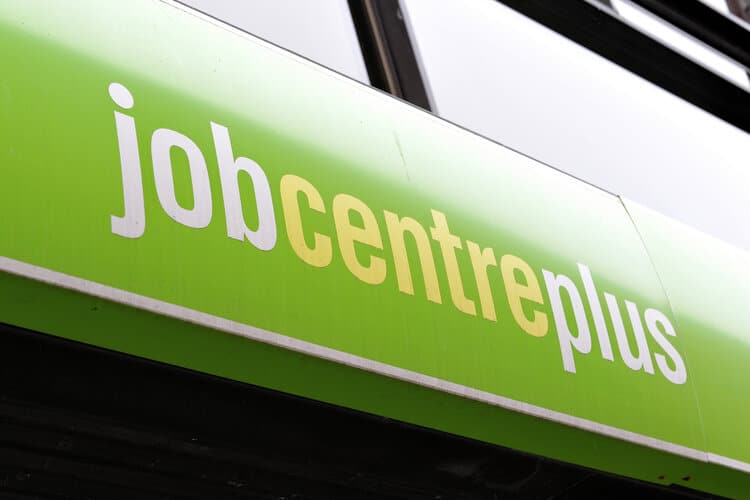Jasmine Birtles
Your money-making expert. Financial journalist, TV and radio personality.

We all know big life events can wipe out our savings – but if you know what they’ll actually cost, it’s much easier to create a plan to save up for them instead. Rather than being taken aback at each life stage, here’s how to be prepared!

We’ll start at the beginning here – though, for most readers, this one comes under ‘having children’ rather than going to uni themselves!
University costs seem to rise and rise – with the fees for a uni course in England costing up to £9,250 per year. For an average three-year degree, that’s a whopping £27,750 just on tuition. If you (or your child) wants to then take a Masters, that rises to up to a further £10,000 for a one-year course. In Northern Ireland, the maximum fee is £4,530 (or £13,590 for a three-year Bachelor’s degree).
Factor in accommodation fees – which vary wildly depending on location – plus living expenses, and it’s easy to see how costs add up. Outside of London, your accommodation could cost an average of £147 a week (on a 46-week contract, that’s £6,762 per year). In London, that rises to up to £233 per week (£10,718 on a 46-week contract). Factor in living costs of groceries and, of course, a social life of around £500 a month (£6,000 a year).
In total, a three-year degree could set you back at least £66,036, assuming you live outside of London.
Don’t panic! There are plenty of student funding options available to support your (or your child’s) education. From grants to loans, the Student Finance company offers a helpful guide to what’s available. If you’re from Wales or Scotland, and attend a Welsh or Scottish university, you won’t pay tuition fees. You could also apply directly to your university for course-specific bursaries or grants.
Saving up to move into your first rented home – that’s not a house-share with a bunch of mates – can take some time. You’ll need to find at least one month’s rent for a deposit (some places ask for five weeks’ rent – but that’s the legal maximum), plus your first month’s rent. You can’t be charged letting fees anymore, so if an agent tries that on walk away! You may need to pay a maximum of £50 for your tenancy agreement if you ask for changes to it.
More than that, you’ll need extra cash for things like household bills, minor maintenance, and even parking permits. Going from either your parents’ home or a house-share with lots of mates (who can split the bills!) and suddenly being solely responsible for all running costs can be a shock. Council Tax, for example, isn’t always included in rent. That means you could be paying an extra £100+ a month than you budgeted for originally, so make sure you ask when looking at properties to rent if it’s included or not!
Average rents vary across the country. In London, a one-bed flat will set you back an average of over £1,000 a month (£12,000 a year). Here’s a handy guide to average rents by borough. It’s easy to see how even London boroughs vary – with a one-bed in Bexley costing around £800 a month while in Camden it’d set you back £1,800 a month!
Outside of London, the average one-bedroom rent in Cardiff is £650 a month, Belfast is £530 a month, and in Edinburgh is £946. Renting outside of major cities is cheaper but may incur larger costs for commuting and things like getting groceries delivered.
So, let’s say you’re renting at a cost of £850 a month – that means you’ll need a deposit of at least £850, plus £850 for your first month’s rent, plus bills (let’s say a conservative estimate of £200 a month not including Council Tax), and a £50 charge for your tenancy agreement. To move into your first rented home that’s not a house share, you’ll need at least £1,950 saved up. That’s before your usual expenses like commuting, groceries, and a social life!
To find out how to save this kind of money even on a tight budget, download our FREE eBook on creating a savings safety net.

This is one of the biggest expenses you’ll face in your lifetime. Once you own a property, moving house at a later date won’t involve such a long time saving up as it takes to get your very first deposit.
Most mortgage lenders want at least a 20% deposit. There are some 90% or even 95% mortgages out there, but this ties you into a very big debt and may not be the best solution for everyone. The average first-time buyer property costs £143,110. So, a 20% deposit means you need to save at least £28,622. However, the more you can save, the better your mortgage options will be. It’s much better to spend a few more years saving for a bigger deposit if you can, as it’ll shorten the overall time you’ll be paying off a mortgage (and the interest fees!), because you’ll need to borrow less.
If you want to live in London, that deposit amount rockets to an average of £132,685. Yes, really.
There are ways to save for your first deposit more quickly. As well as the tips offered in our free eBook, consider opening a Lifetime ISA as soon as you start thinking about wanting to buy a home. You can save up to £4,000 a year into it, and the Government adds in a 25% bonus on top. That means in just two years, you could save £8,000 of your own cash – and get an extra £2,000 on top for your deposit. If you’re in a couple and you’re both first-time buyers, you can each have a LISA. So, in two years, you could save £16,000 with an extra £4,000 from the Government between you! In five years, a couple could save £40,000 of their own cash and receive an extra £10,000 on top from the Government – which is plenty for a deposit!
A LISA does come with some restrictions and it’s not for everybody (especially as investment LISAs are, like any investing product, at risk of losing your capital as well as growing it). However, if you want to save for your first home, it’s one of the best ways to save as fast as possible for your deposit.
Owning a pet dog, cat, bird or other animal is a must-have on the Life Goals list for many of us. Pets bring joy and warmth into any home, so it’s understandable that many of us want to have one (or two, or three…!). However, before you become a pet owner, consider how much it’ll cost you.
Not only the initial cost of buying a pet, either! Although, that is a hefty outlay for many species. Puppies have rocketed in price since Covid-19 hit, as we all spend more time at home and finally have the time to care for an energetic ball of fluff. That demand meant prices soared – a Golden Retriever puppy would have set you back around £600 in 2019, but now will cost upwards of £3,000!
We always encourage to ‘adopt don’t shop’, but that comes with a price tag still. It’s a lot cheaper to adopt, but you’ll need to find an adoption fee to pay the shelter for their administrative costs, and many ask for an extra donation to support their work (it’s voluntary, but you may feel you want to pay it).
On top of that, any new pet requires vet checks, vaccinations, and home comforts and essentials (food and water, bowls, toys, bedding…). That’s before you add in things like pet boarding when you want to go on holiday, or dog walking services for your really busy days. The good news is we’ve got an article all about how to reduce your pet expenses – check it out!
If you know you want a pet, it’s a good idea to create a savings safety net for your new animal friend. First, save for the initial costs of adopting or buying a pet – and then make sure you have plenty set aside in the account for unexpected vet bills in the future. You can start your fund with a long-term savings account, and consider moving a portion into an easy-access savings account when you own your pet (in case you need to access the cash in a vet emergency). Figure out how to find spare cash – and how to meet your pet saving goals – with the help of our free eBook all about savings!

This is one of The Big Ones. While it’s possible to get married for less than £2,000 (including registrar fees and an intimate dinner for close family and friends), many people want to opt for a larger celebration.
In fact, the average wedding in the UK costs over £30,000. Yes, really!
Smaller weddings have been the rage in 2020… well, not by choice! Lockdown rules meant many had to change wedding plans for much smaller ceremonies. While the trend is expected to continue through this year, many who cancelled their 2020 wedding plans have moved their celebrations for a much bigger event in upcoming years. We all want to get together to celebrate after over a year apart, after all!
Saving for a wedding can seem like a daunting task. However, it’s worth remembering that some family members may want to help you with the costs. They can either pay directly for some things – or gift you up to £5,000 tax-free. With such lump sums towards your wedding, it’s important to tuck them away somewhere that gets a good return. A separate savings account with a fixed term interest rate is one way to save for your nuptials – and not be tempted to dip into the fund beforehand! You can set up a joint account if you want – or both of you can each have an account to save into if you prefer. Linking yourself financially comes with a few risks, so make sure you understand your partner’s financial position before you open a joint account.
One of the most rewarding goals for many people, having a baby is also the most expensive! A child can cost you at least £6,000 just in the first year. All of the baby furniture, nappies, clothes (they grow fast!), travel cots, and other paraphernalia quickly adds up. You could save on some of these expenses by asking friends and family with older children for second-hand items they don’t need anymore. Some family and friends may also want to gift items when the baby is born, too.
You can check out your baby budget on the Money Advice Service Baby Costs Calculator – a handy free tool to help you set savings goals so you’re financially prepared for having a child.
Over the course of their first 18 years, the costs of having a child quickly grow. School uniforms, trips, family holidays, a growing food bill, extra utility bill costs, and everything else quickly adds up. In fact, it could cost an average of £151,000 – and that rises to around £185,000 for single parent families (due to added childcare costs).
As well as day-to-day costs, you may want to start saving for your child. Doing so early on in their life means it’s possible to make the most of compound interest returns – investing small amounts now means there’s plenty of time for the cash to grow before they turn 18. Set up a Junior ISA and pay small amounts into it each year – the returns quickly add up, and they’ll receive a wonderful 18th birthday gift! This is also a great way to help save for their life events, such as university expenses or their first home deposit.
For higher income families, a pension set up for a child is a great tax-efficient way to provide an inheritance that has DECADES to grow in wealth before your child can use it. With small investments now, you can set your child up for a comfortable retirement in 60+ years time!

While it’s not a life event goal, redundancy is something many of us will face at some point in our careers. Those with more than two years’ employment with their employer will receive the minimum statutory redundancy package. Still, this often isn’t a lot – unless you’ve worked for them for decades – and puts many people in sudden financial difficulty. If you have less than two years’ employment, you might not receive any redundancy package at all (other than the contractual dismissal amount – such as a final month’s pay, and you may have to work that final month, too).
Planning for redundancy means creating a safety savings net that you can fall back on if you’re suddenly without a job. In post-Covid times, it’s a situation we’re becoming increasingly aware of and worried about as businesses from all sectors try to bounce back in a tough economy. Setting aside as much spare cash as possible is important to make sure you can ride out a few months of unemployment without struggling financially.
Make a household budget. List all of your expenses – ALL of them – and work out how much you need each month at a minimum. Remember to include annual costs like insurance premiums, too! Ideally, you need six times this figure saved up to make sure you have a safety savings net to cover redundancy. No idea how to scrape that amount together? Download our savings eBook for tips!
Of course, sometimes redundancy can go in your favour. Many years’ service can offer you the opportunity to negotiate a decent severance package. When this happens, it can be tempting to splash the cash!
However, once you’ve set aside that essential six-month savings buffer, look at what’s left. Lump sum investments may be the way to go – whether that’s filling up your annual ISA allowance or finding tax-efficient savings options like a Tax Exempt Savings Plan from a mutual society.
As with any lump sum windfall, think carefully about what to do with your new cash. It’s often worth talking to a financial advisor for help – and you can find reliable and trusted advisors on VouchedFor.
Even if it’s decades away, planning for retirement is important at any age. Starting early with your retirement plans means your investments have time to grow – so you can invest less to reap more over time!
The State Pension isn’t enough to live off. If you’re not currently near State Pension age, it could also change significantly before you get there, too! The system could be entirely different by the time you retire – so it’s important to plan for your retirement without assuming you’ll receive the State Pension. Households need at least £25,000 a year in retirement – and the State Pension is currently a maximum of £13,692 for a married couple.
First, make sure you’re making the most of your workplace pension. It’s essentially free money for your retirement! Employers are legally obliged to contribute to your pension, on top of your own contributions, PLUS the Government adds in pension tax relief, too.
Have a range of savings and investments options, too. Diversifying your portfolio helps protect against market fluctuations over time. So, as well as your pension, consider things like a Stocks and Shares ISA to help with your tax-free wealth growth. Some people may also opt for a LISA which allows them to benefit from a 25% Government bonus, accessed when they turn 60.
Consider your retirement options, too. Many choose flexible retirement – phasing out work rather than suddenly stopping altogether. This helps top up their income and gives their pension more time to grow. It also helps lifestyle choices, as going cold-turkey retired often leaves people wondering what to do with themselves! Phasing out work can help you achieve later life financial goals (such as going on a cruise of a lifetime, or supporting your grandchildren financially) while leaving your retirement pot until you really need it.
Whichever big event you are saving for you should be aware that depending on the investment type you choose, there is a chance that you may get back less than you have paid in.
The thing with all of these life goals is that they’re rather expensive when you look at them in a list like this! The good news is that it’s entirely possible to save for them – even if you’re on a tight budget. We’ve partnered with Foresters Friendly Society to create “Why Do I Need to Save?”, a FREE eBook jam-packed with savings tips for every budget. Download it here for free!

All explained very clearly.